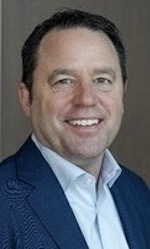Daily Business Report: Tuesday, April 26, 2022
How Do Big Tech Giants Make Their Billions?
Visual Capitalist
In 2021, the Big Five tech giants—Apple, Amazon, Google (Alphabet), Meta, and Microsoft—generated a combined $1.4 trillion in revenue.
What are the sources of this revenue, and how does it breakdown?
We’ll dive into the main ways that these big tech giants generate revenue, and take a look at how much their revenues have increased in recent years.
there are two main ways that big tech companies generate revenue:
• They either sell you a product
• Or sell you as the product to advertisers
Apple, Microsoft, and Amazon fall into the first category—like most traditional businesses, these companies offer customers a physical (or digital) product in exchange for money. More than half of Apple’s revenue comes from iPhone sales, Azure cloud services generate almost a third of Microsoft’s total, and Amazon’s online stores account for nearly 50 percent of the company’s revenue.
On the other hand, Meta and Alphabet do things a bit differently. Rather than selling an actual product, these two tech giants make most of their money by selling their audience’s attention. Nearly 98 percent of Meta’s revenue comes from Facebook ads, and 81 percent of Google’s revenue comes from advertising on various Google products.
However, despite their varying ways of generating sales, these companies all have one thing in common: revenues have soared in recent years.
Amidst rising unemployment and pandemic-induced chaos, the Big Five still managed to see a significant revenue uptick.
San Diego prepares to lift 30-foot height
limit in the Midway District — again
San Diego’s second attempt to lift the 30-foot building height limit in the Midway District started in earnest last week with two separate actions of equal significance.
Wednesday, the City Council’s Rules Committee voted unanimously in favor of drafting language for a repeat initiative that would ask city voters to remove the Midway Pacific-Highway Community Planning area from the city’s coastal zone. The action was followed Friday with the draft release of a court-ordered report analyzing the impacts of taller buildings in the 1,324-acre area that includes San Diego’s sports arena.
Taken together, the events make possible — but not certain — a November, do-over ballot measure that San Diego leaders say is key to refashioning the largely commercial neighborhood, starting with the city’s real estate holdings at 3500, 3250, 3220 and 3240 Sports Arena Blvd. Five bidders are in the running to remake the 48-acre sports arena site with residential and commercial towers not possible by current building restrictions.
Scientific journal validates San Diego
company’s cancer-detecting test for dogs
PetDx, a San Diego-based molecular diagnostics company, reports that a scientific journal has validated the performance of OncoK9, its cancer-detecting test for dogs. The publication in the journal PLOS One details the largest clinical validation study ever performed in veterinary cancer diagnostics and demonstrates that the performance of OncoK9 – “the liquid biopsy test for dogs,” mirrors that of leading multi-cancer early detection tests for humans.
“PetDx has made an unprecedented investment over the past few years to develop and validate a blood-based test for the detection and characterization of cancer in our canine companions. This landmark study, and our rich R&D pipeline in veterinary oncology, underscore our commitment to building PetDx into the world’s leading veterinary cancer diagnostics company,” said Daniel S. Grosu, M.D., founder and CEO of PetDx.
Since its launch in 2021, the OncoK9 liquid biopsy test has been successfully integrated into routine testing at many hundreds of leading veterinary practices nationwide as a new preventive care and aid-in-diagnosis tool. Today, blood samples from all over the country are shipped daily to the PetDx central laboratory in San Diego, and results are delivered to ordering veterinarians within 10 business days. The test is available at veterinary clinics in the United States and Canada through PetDx and IDEXX Reference Laboratories.
Sebastian Castro-Malaspina named VP of national
grocery accounts for Bumble Bee Seafood
The Bumble Bee Seafood Company continues has hired Sebastian Castro-Malaspina as vice president of national grocery accounts.
Castro-Malaspina will be responsible for providing strategic leadership by utilizing category, customer, and consumer insight information to support development and execution of effective and sustainable sales initiatives for the company.
Castro-Malaspina hA nearly 20 years of experience working across several leading CPG organizations.
Most recently, he spent eight years at Danone North America serving in a variety of sales and category management leadership roles. Prior to Danone, Castro-Malaspina also held commercial leadership positions at Coty and Church & Dwight, as well as spending time at market research firm, the Nielsen Company.
Castro-Malaspina’s focus will be overseeing a group of outstanding sales leaders to elevate relationships and drive efficiencies with retailers including Kroger, Albertsons, Ahold/Delhaize, Publix, HEB, and HyVee.
Illumina supports leading German hospital to
accelerate diagnosis in critically ill children
Illumina Inc. a global leader in DNA sequencing and array-based technologies, announced an agreement with Germany’s Hannover Medical School to implement the use of whole-genome sequencing (WGS) in critically ill children suspected of having a genetic or rare disease.
The project, led by the Department of Human Genetics at Hanover Medical School, will evaluate the use of WGS in neonatal and pediatric intensive care unit settings to show the positive impact of earlier diagnosis and treatment for hospitalized children.
At least 100 critically ill children in intensive care with suspected genetic disorders will be tested, where possible as a trio (affected child and their parents), to evaluate the diagnostic efficacy of rapid WGS. The study findings will be used to challenge the existing inclusion and exclusion criteria for WGS eligibility in intensive care settings and help to establish appropriate evidence for earlier use of WGS in the German health care system.
Spreckels Organ Society raises more
than $15,800 for Ukraine refugees
Spreckels Organ Society, a non-profit organization curating concerts and performances in the heart of Balboa Park, hosted a benefit concert on March 19 for Ukraine Refugees. The event raised $15,862 in donations to provide humanitarian relief. Approximately 1,400 community members gathered in support of Ukraine. Donations are still being accepted.
Organized by Spreckels Organ Society – together with the San Diego Diplomacy Council and Forever Balboa Park –donations were collected by Operation USA, a nonprofit actively responding to the Ukrainian Refugee Crisis by sending emergency cash grants to community-based partners in Poland and nearby countries, as well as coordinating delivery of in-kind material aid. Operation USA was chosen because 100 percent of funds received go to the effort. Additional gifts can be made at https://give.opusa.org/sos.

Birch Aquarium wants you to name one of
the Little Blue Penguins coming this summer
All penguin lovers will have a chance to name one of the 15 Little Blue Penguins that will move into the Beyster Family Little Blue Penguins habitat at Birch Aquarium at Scripps Institution of Oceanography when it opens this summer.
“Being able to introduce the community to Little Blue Penguins and foster a deeper connection and understanding of their environment, how important they are to our ecosystems and the survival challenges they face, is truly a milestone worth celebrating,” said Jenn Nero Moffatt, senior director of animal care, science and conservation.
So, waddle be his name? That’s for the public to decide! From April 25 to May 8 the public can suggest a name along with why they think it’s the perfect fit for this penguin on Birch Aquarium’s website. This pint-sized penguin needs a name as unique as its species. Birch Aquarium encourages the community to pick a name with ties to San Diego, UC San Diego, Scripps Institution of Oceanography, or Birch Aquarium itself.
Jim Cathey appointed chief commercial
officer for Qualcomm Technologies Inc.
Qualcomm Inc. has appointed Jim Cathey as chief commercial officer of Qualcomm Technologies Inc., joining Qualcomm’s executive committee.
He will report directly to Cristiano Amon, president and CEO of Qualcomm.
Cathey joined Qualcomm in 2006 and prior to this appointment was senior vice president and president of Global Business for Qualcomm Technologies with overall responsibility for all go-to-market activities, including global sales and business development, account management, carrier partnerships, sales operations, distribution channels, as well as assisting with in-country relationships.
Prior, Cathey was president of Qualcomm Technologies businesses in Asia Pacific and India, after holding the positions of president of Qualcomm Technologies operations in Japan, and country manager in Taiwan.
Before joining Qualcomm, Cathey served as an executive at Micron Technology and MicroDisplay, as well as the head of investor relations for PixTech.
MG Properties acquires 215-unit
apartment building in Placentia
Properties, a private San Diego-based real estate investor, owner, and operator is further expanding its presence in Orange County with the acquisition of The Herald Apartments in Placentia. Built in 2021, this 215-unit community is a rare opportunity to acquire a Class A asset in Placentia. The strong demographics of the surrounding area make The Herald’s exceptional amenity package and high-quality finishes well suited to the market.
Ando customers can plant a tree with
every purchase using Ando Visa debit card
Ando, the sustainable banking fintech platform in San Diego, launched a program in which customers can plant a tree by rounding up every purchase they make with their Ando Visa Debit Card. For as little as one penny, each rounded-up purchase equals one planted tree (the average cost to plant a tree, including administration of the program, is about 50 cents). Participants in the program already earn unlimited 1.5 percent cashback on every purchase every day.
“The national average for a debit card purchase is $38. Since the Ando Visa Debit card earns you unlimited 1.5 percent on every transaction, that’s $0.57 cashback on the average purchase. So really, every swipe earns you money and enables you to plant a tree, a win/win,” said Ando CEO JP McNeill.







